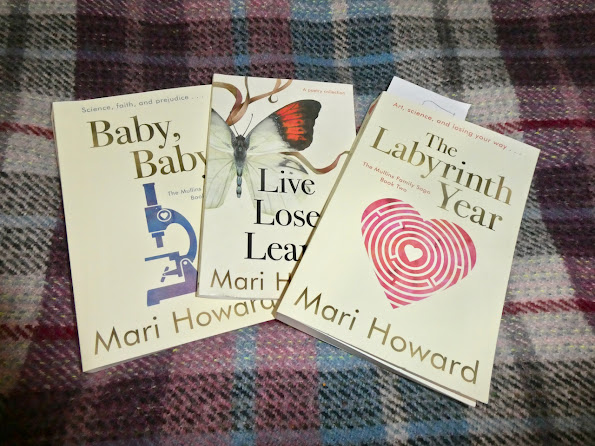Are you ‘pro’ ‘crastination’? -- Mari Howard
Please excuse... a wry look at an often-appearing word in writers’ Facebook chats...
Here’s something I wrote earlier – actually in 2015, but the theme still recurs today, more than five years on... back then, I began some notes starting with...
I was about to write a blog post, when procrastination (often associated with depression) occurred: the carpet was covered in cat hair, and a better use of time would be to hoover the entire downstairs. And the cat tray also needed attention … then, I read this: ‘Procrastination is the practice of carrying out less urgent tasks in preference to more urgent ones, or doing more pleasurable things in place of less pleasurable ones.’
The decision (to fetch the vacuum cleaner, use it throughout the house downstairs, and proceed to renewing the litter in the cat tray) was definitely correct: initially, I’d paused only to read up procrastinating on Wikipedia. Because these writers’ tales of its seductive powers was becoming irritating... Wikipedia’s article seemed endless, (as habitual procrastination must indeed become). Various theories on this human problem, and confirmation that the disease is most found among students and others who write. But now we had a nice clean de-catted downstairs, meaning more pleasure is to be found in housework than in a piece of completed writing?
Completing editing The Labyrinth Year (2014, follow-up to Baby, Baby, 2009) and ‘packed full of inter-generational family fighting and the undermining conflicting influences of duty and ambition, a potent mix when child care is added’) – completing that, awaiting the cover design, I heard the call of more neglected domesticity: ‘If I stay at yours,’ came the question from a now-grown, moved-away, child, ‘will there be some of your nut biscuits?’
So, by ‘procrastination’ we have nut biscuits. They cool on the wire tray: I post their portrait on Facebook and Twitter. Signalling to ‘friends’ and friends that the novel has made one more small step forward towards expected publication, and ‘...until we have the cover design …’
‘The pleasure principle may be responsible for procrastination; one may prefer to avoid negative emotions, and to delay stressful tasks’.
Let’s re-define procrastination: it is not pro-crastination to have a clean house, and baked goods in the tin when the family drop by? These are the simpler, less stressful, of a multitude of tasks. Their production gives pleasure to the self, as does knowing you’ve given pleasure to the others who are crunching their way through the batch. It is not pro-crastination, I argue, to give oneself a break after the brain-frying business of editing, re-editing, re-writes, and social networking to alert the reading world that you exist. And that you have already written something worth at least of reviews, a decent listing for the Peoples’ Book Prize 2013, a Goodreads Giveaway, and a few really heartening responses. Such as:
‘… the more I read the more I wanted to read and the conclusion was masterly and redeeming.’
‘I grew fond of the well-crafted characters … a great plot and … points to make you think…’
‘The dynamic of love which holds the two central characters together is complex; the dilemmas they face in being true to themselves without betraying their beliefs are explored honestly and painfully and the resolution is not facile but very moving.’
‘The reflections on science are peppered with some very earthy and realistic dialogue…’ (‘earthy’? Can science be ‘earthy’?)
Yep, the more stressful task: the writing, editing, etc to achieve the reflections on science, the so-called earthy dialogue, and indeed the well-crafted characters who end up in some sort of a redeeming situation. Or following the recipe for gluten and dairy free sesame and nut cookies … for the short-term pleasure of pleasing others who want to eat them?
So does procrastination maintain its attraction? (NB who’d prefer doing the cat tray to sitting at a nice neat computer, typing a story? On the other hand, which task delivers the feel-good factor faster?) I, for one, am definitely not pro this crastination lark. Now editing the follow-up to The Labyrinth Year, and hoping to publish a story collection, Life in Art and Practice sooner rather than later, am I regretting the time spent trying out a new, vegan and gluten free, recipe for Stollen? I am not: a slice goes well with a mug of tea...
‘Schraw, Wadkins, and Olafson in 2007 proposed three criteria for a behavior to be classified as academic procrastination: it must be counterproductive, needless, and delaying.’
Writers, be less hard on yourselves: students may, but we, I argue, don’t, suffer much from counterproductive, needless, and delaying procrastination. Ask yourself: is meditating over a mug of coffee, digging the garden, or taking a leisurely walk, not productive in itself? Does it not help the wheels of the creative mind to slow, and the right brain activity to renew itself? Why else do the best plot twists occur to us in the shower?
Quotes: Wikipedia on Procrastination
Selected review comments

Comments
I wonder if writers are so prone to procrastination because, in my experience, once you're in the zone you really really don't want to come out of it, not for getting the next meal, answering the telephone, taking an aged relative to the doctor... and because you know the creative flow will be interrupted by all these things and more, you don't want to get into the zone in the first place. A feeble excuse perhaps, and one which would apply to all creators - painters, composers, artists of all kinds. I'm always impressed when I read about people who can grab 25 minutes here and 10 minutes there to write, between bathing children, clearing up dog mess, bleeding radiators, answering emails etc. I'm not one of them, unfortunately! As you say, we just have to go with the flow and that's good too.
I'm still thinking about those nut biscuits.